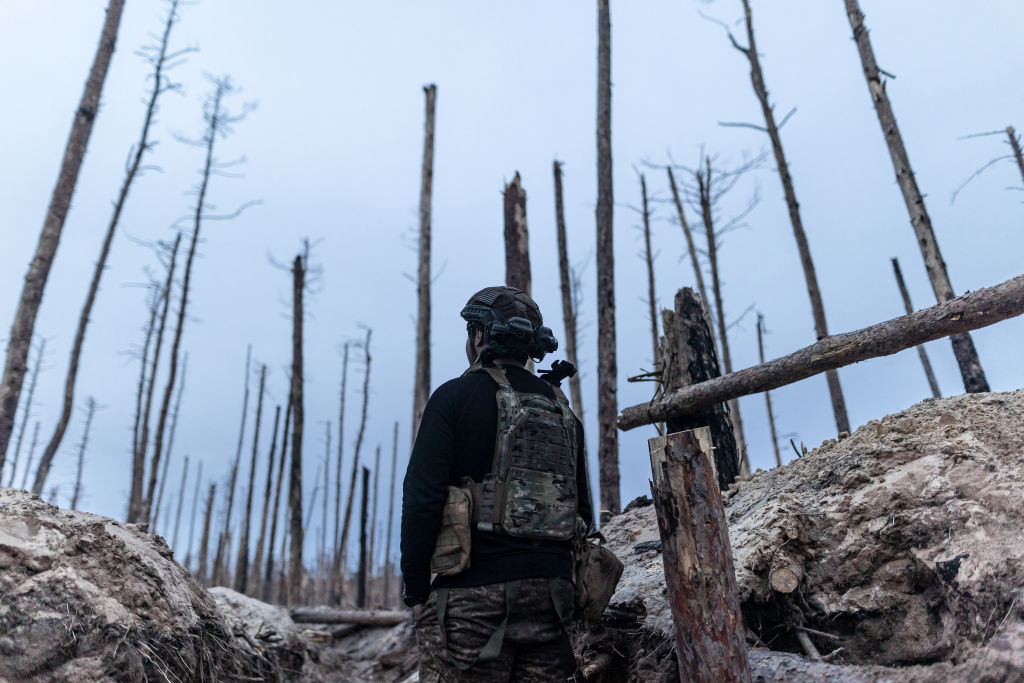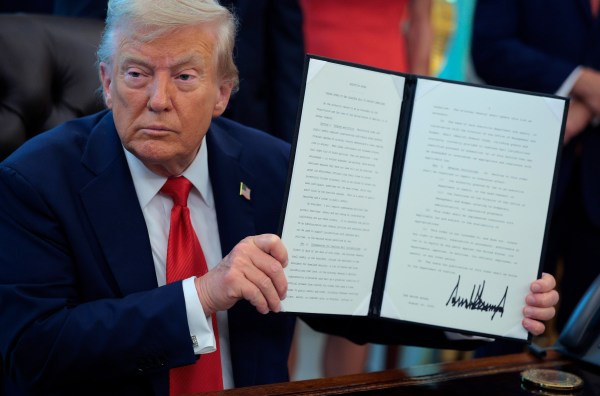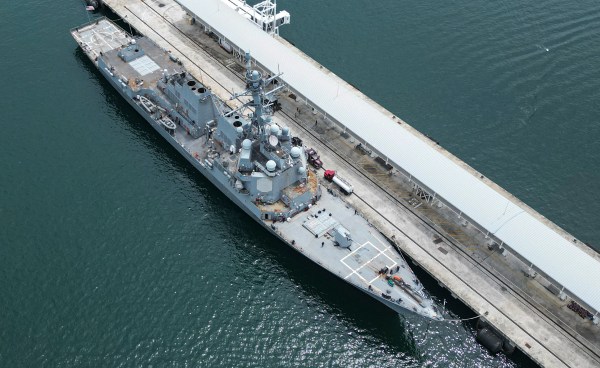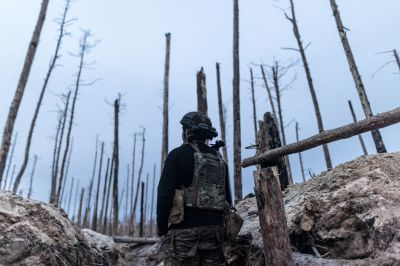DONBAS, Ukraine—It’s rare to see gruff front line personnel, the kind who have been to hell and back, be so raw and straightforward with their emotions.
“It hurts,” said Yevhenii Solod, a medic who evacuates the gravely injured from the battlefield. “It’s insulting, I would say.”
Solod is talking about the pain he feels when he goes back to major cities in Ukraine and sees civilians trying to live life as usual. Like many still actively involved in Ukraine’s war effort, he is noticing a growing divide between those fighting and those they’re fighting to protect.
Much like American soldiers who returned home from far-away places in Iraq and Afghanistan to civilians ignorant of the sacrifices they made, Solod feels that the Ukrainian public needs to step up. “It hurts me even more because my father is on the front lines right now,” he said. “You come back, and [civilians] live absolutely all their life being ignorant about what is happening.”
For Ukrainian troops and front line workers, the past few months have grown increasingly bleak. There’s a sense that the tide of war has swung decisively against them, and that their country—exhausted from two years of fighting, outmanned and outgunned—is on the precipice of a terrible disaster.
In the United States, this is an abstract policy decision. In Ukraine, it’s a human catastrophe.
Sitting in the back of his ambulance, Solod is in the midst of yet another trip back and forth from the front lines. The dangerous job includes the soul-crushing task of trying to keep horrific battlefield injuries from killing his patients. The medic yearns for the spirit of the early days of Russia’s invasion, when it seemed like Ukrainians everywhere were unified against the Russian military. Every factory was churning out war-related goods; every civilian was helping deliver food or making camouflage nets.
This is still happening to a degree, but such national resolve is difficult to sustain for years on end. Many civilians are now less engaged than they were, trying to inject some normalcy into their lives even as air alerts and bombings in major cities continue at a startling clip.
“Some people live in peaceful cities, and they live like the war has never happened,” Solod said. “I try to understand, because everyone has to have their own lives, and everyone is making their own choices.”
Russia has recently been making advances in eastern Ukraine, aided by Ukrainian shortages in ammunition and Western dithering.
The state of the war being what it is, there’s no telling when the conveyor belt of wounded and dead will stop. “Everybody understands that there won’t be any rotation soon,” explained Ivan Tarn, a 34-year-old soldier. “This war is for [the] long [haul]. It is for years to come. And everybody is starting to adapt to that new idea.”
Confusion over the future is compounded by Ukraine's lack of a publicly declared strategy about what victory means and how they will achieve it.
“I don’t know [how to fix the strategic issues],” sighed Bogdan, a Ukrainian drone pilot with multiple deployments. Like many other soldiers interviewed for this piece, he declined to provide their surname for security reasons. “I just know what I need to do. That’s it. I need to do my job in the best way I can. That’s it.”
Ukrainian forces held off Russia’s invasion admirably for months. Still, both Ukrainian President Volodymyr Zelensky and the Institute for the Study of War have assessed that Russia has regained momentum after capturing the towns of Bakhmut and Avdiivka in eastern Ukraine. Although Russian forces have reportedly taken hundreds of thousands of casualties, they may even launch a new offensive as early as May.
“The situation for the Ukrainian army is bad,” said Aslan, a Chechen soldier fighting for the Ukrainian military. “But to be honest, it’s also very bad on the Russian side. … They throw themselves at our positions like meat, and we don’t have enough ammunition, shells, or men to stop them, so we are forced to gradually withdraw.”
In such a war of attrition, an authoritarian leader’s disregard for human life can effectively grind the opponent down. Russian President Vladimir Putin has an extremely high threshold for battlefield casualties, with analysts estimating that Russian forces lost more troops fighting for the small town of Avdiivka than they did in a decade of warfare in Afghanistan during the 1980s.
But the Ukrainians aren’t toast yet. There’s a lot more warfighting to be done.
“The situation is much better than when we fought the Russians in Chechnya,” said Walid, the commander of the Chechen Sheikh Mansur Battalion, in a safe house in eastern Ukraine. “They use exactly the same techniques and strategies; the only difference is that today, in Ukraine, we are better trained and organized. But, most importantly, we still have the support of the West for now.”
For now.
Zelensky and his administration are in a bind. How can Ukrainian political and military leaders put together a comprehensive strategy when they do not know how much support they can count on from the West? France and Germany have recently signed long-term security agreements with the war-torn country—as has the United Kingdom—but Ukraine’s largest benefactor during the first year of the war, the United States, has not.
American military assistance for Ukraine’s war effort dried up at the beginning of this year, and a faction of populist Republicans in Congress has blocked additional aid from being appropriated. It’s unclear when that will change, if it ever does.
Given that reality, Aslan, the Chechen soldier, is worried about the state of the Ukrainian army. “They lack ammunition, shells, artillery, aviation, anti-aircraft defense systems, and equipment of all kinds,” he said near the front lines in Chasiv Yar, a city in Donetsk Oblast. “Ukraine is retreating because it lacks ammunition.”
Among soldiers and civilians alike, the sense of betrayal is palpable. They heard the United States promise to support their war effort for “as long as it takes,” only for aid to run out when Ukraine is arguably at its most vulnerable.
“These are rich and powerful countries, and they haven’t even sent Ukraine 10 percent of what it needed to fight,” Aslan said, anger in his voice. “They haven’t given us enough to break the Russian defenses.” A persistent critique of the Biden administration’s approach to the war—even before aid dried up—has been that it consistently provided Ukraine with enough munitions to stave off Russian advances but not to actually defeat the enemy.
Frustrations with allies aside, recent shakeups in the country’s military hierarchy have also complicated Ukraine’s war effort. Zelensky decided to fire his commander-in-chief, Valerii Zaluzhny, last month, removing from his post one of the only people in Ukraine with a higher approval rating than his own.
Why? Zaluzhny made a classic political blunder: telling the truth. In an interview with The Economist late last year, he admitted that the war had become a “stalemate” and that there would “most likely be no deep and beautiful breakthrough.”
The general also backed the Ukrainian military’s request in December for another 500,000 conscripts—a massive influx of new troops for a country with only 800,000 currently serving in the Armed Forces.
This all takes place with a grim backdrop: Zelensky recently said 31,000 Ukrainian soldiers have been killed in the war, though U.S. intelligence officials believe that tally could be more than twice as high. The Ukrainian military’s proposal shook the civilian leadership, which immediately understood that it would be deeply unpopular with the broader population.
The proposal is still working its way through the Ukrainian legislature, but troops on the front line say that their relief can’t come soon enough.
“It’s absolutely necessary. There is no other way,” said Tarn. “It has to be done, and better sooner than later. Because every day that we wait with this, we lose experienced troops who can pass their experience on. … The longer we wait [for] providing new troops, the more difficult the task before those new troops becomes.”
Going forward, new troops will be under the command of Oleksandr Syrskyi, a Russian-born general known for his Russian approach toward prioritizing strategic objectives over human lives. Ukrainian soldiers—most of whom greatly admired and respected Zaluzhny—are not thrilled with the transition.
“I was deeply moved by General Zaluzhny’s dismissal,” said Mykhailo, a 25-year-old soldier enlisted in the 36th Naval Infantry Brigade. “But not as much as when I learned he was replaced by Syrsky.”
The new commander’s nationality is also a sticking point for some. “Even though he remains a fine strategist, I have a hard time with him because he is Russian,” said Serhii, a soldier who has been fighting for the Ukrainian territorial defense forces since 2022. “[Syrskyi] was born in Russia and studied in Russia.”
Syrskyi’s tactics have earned him some tough nicknames. “I served under his command,” Mykhailo explained with a sigh. “Unlike Zaluzhny, he sees the lives of his men as a mathematical equation. That’s why he’s called ‘The Butcher.’”
In Syrskyi’s defense, Aslan Ocherkhadzhiev, one of the commanders of the Sheikh Mansur Battalion, considers this title relatively unfair. “[Syrskyi] is nicknamed ‘The Butcher’ simply because he fights to the end and demands that his soldiers do the same,” Ocherkhadzhiev said. “He refuses to surrender and to give up even the smallest piece of territory to the Russians.”
“It’s true he has a bad reputation,” Ocherkhadzhiev continued. “But he led the ground army during the toughest operations of the war, and one must not forget that war is war. Syrskyi is less delicate, but he remains a brilliant man. And if his methods do not win unanimous approval, he is still more than a competent general surrounded by a team of soldiers with extensive field experience.”
But like many Ukrainian soldiers, Mykhailo thinks that the change in leadership will not have much impact on the course of the war.
“What we lack most of all is ammunition and aid from the West,” he said. “Whether it’s Zaluzhny or Syrskyi at the head of the army, it’s not going to help us fill our arsenals.”







Please note that we at The Dispatch hold ourselves, our work, and our commenters to a higher standard than other places on the internet. We welcome comments that foster genuine debate or discussion—including comments critical of us or our work—but responses that include ad hominem attacks on fellow Dispatch members or are intended to stoke fear and anger may be moderated.
With your membership, you only have the ability to comment on The Morning Dispatch articles. Consider upgrading to join the conversation everywhere.